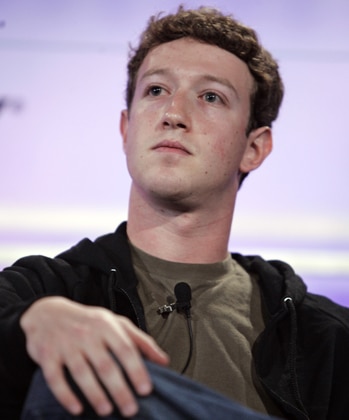
Share and share alike. The Mark Zuckerberg philosophy now extends way beyond users’ occasional, individual sharing actions. Facebook wants users to share the whole of their lives, right down to the minutest detail, right back to their birth, and often automatically.
Facebook’s new Timeline redesign and Open Graph app platform are designed to get users to pump out more and more specific information about themselves – what they’re cooking, listening to, reading, how fast they’re running, any accomplishment an online game chooses to feed out; whatever actions developers can conceive to give users infinitely more granularity than “Like”.
“All your stories, all your life,” Zuckerberg said, showing how the new Timeline can be retrospectively populated with content as far back as users’ birthdate and extends to reveal the whole chronological story of their life through photos and events.
“No activity is too big or too small to share,” he added, illustrating how a new “reports” view can show his friends “everything I cooked in September” or his Nike+ running performance, for example.
For Zuckerberg, this philosophy has clearly become a kind of impassioned ideology. “Before today, there was really no socially acceptable way to express lightweight activity (on Facebook),” he exclaimed, as though addressing what developers and engineers might call a “problem”. “Now there is. This is going to make it easy to share orders of magnitude more things than before. We think that people are going to want to express all kinds of things about their lives.”
The recent consumer trend has, indeed, been toward more personal sharing and transparency. And Facebook has been working to improve privacy controls around that. But there are also some folks growing unsettled by Zuckerberg’s share-everything mantra, wondering whether Facebook ever stops to question the inevitability of the movement. And are we already witnessing the first few signs of consumers’ social networking fatigue?
Zuckerberg has come on leaps and bounds as a public speaker, and his slick F8 delivery was lifted right of Steve Jobs’ MacWorld playbook in a broadcastr event that was targeted as much at general Facebook consumers as the industry community. But when Zuckerberg speaks with such conviction about the new sharing agora, it’s hard not to interpret his script with a tinge of either menace or naivite. When he predicts with certainty how we will share our every eating habit (perhaps even bowel movement?) between geeky exclamations of “it’s really neat” and “it’s pretty cool”, some might wonder at the youth still at work.
“Last year, we added nouns; this year, we’re adding verbs,” Zuckerberg said, as though releasing the latest beta software iteration of a product most people have used to communicate with for centuries. “I’m looking forward to my first eating ‘report’ when that comes out, that will be a lot of fun,” he added, leaving a gaping space where the irony might have been (there is, in truth, a growing trend online in lifetracking and Zuckerberg’s keenness to share his running records is testament to his part in it).
If the whole super-sized sharing plan works without hitch, the extra depth and knowledge of its users Facebook will acquire will be impressive indeed, putting it on a potential road to business maturity. For one thing, Facebook is now replicating entire disparate businesses, like Last.fm and Flickr, whose own audio scrobbling and photo albums respectively nowadays appear dislocated on their own private islands, as mere features of its own platform.
But Zuckerberg’s F8 made no allusion do any direct business benefit from any of the announcements, no suggestion of any advertising pay-off from all this new data.
“It’s not a commercial decision,” Facebook’s EMEA platform partnerships Christian Hernandez told paidContent following F8, adding the whole idea was still about building out Facebook’s platform and engagement.
Facebook, Zuckerberg announced, is already up to 800 million users. Recently, it hit a fantastical milestone at which 500 million of them used the site on a single given day. That is extraordinary reach and engagement today, right now.
But Facebook seems intent on mining the minutiae of users’ lives before going big, fixed on marvelling at how its can rearticulate real-world social lives through its software engineering project, before growing up with the suits on Wall Street.